2 Volumes
Margaret E. Fisher M.D. (Rosenthal)
New volume 2017-07-18 12:01:49 description
Miscellaneous Family Photos ???
New volume 2017-07-20 21:38:54 description
Margaret E. Fisher's M.D. Family
New topic 2017-07-19 20:02:27 description
Margaret E. Fisher M.D. (Rosenthal) Family Photos
 |
 |
 |
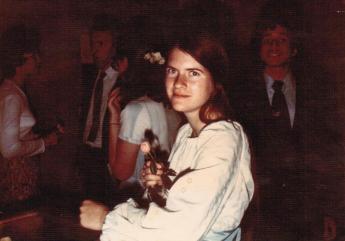 |
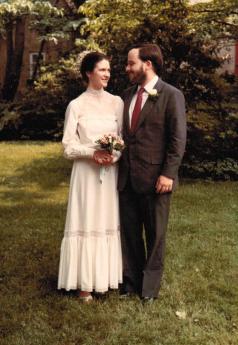 |
 |
 |
 |
 |
 |
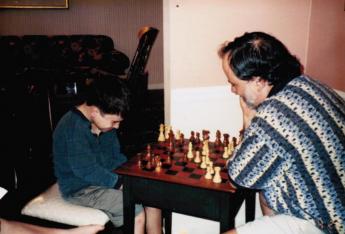 |
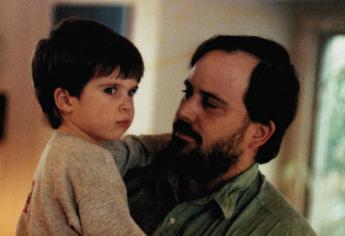 |
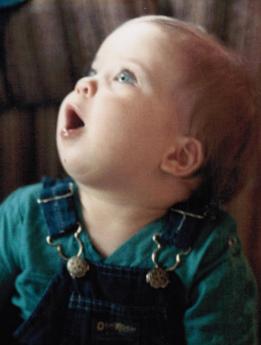 |
 |
 |
 |
 |
 |
 |
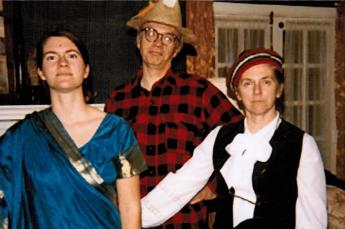 |
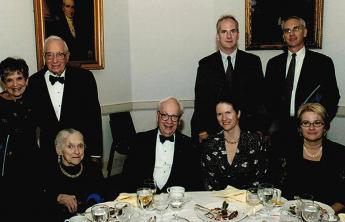 |
 |
 |
 |
 |
 |
 |
 |
 |
 |
The Troubled Times: Gray Lady in Limbo.
Today’s New York Times, the stately and respected establishmentarian of American newspaper industry, will sell almost a million copies around the nation.
Its news and editorial pages will send ripples of concern or support to those who run universities, business and government. Its front page will help define what is news, setting an agenda that will help guide television networks, newspapers and national news magazines. Its reviews can launch young talent or snuff it out. And its four full sections will undoubtedly be the first public version of yesterday’s happenings reviewed by future historians the newspaper of record’s durable rendering of the events of January 7, 1986.
This powerful newspaper, whose readers include most of the nation’s elite or “the very very very top top top, “ as Times Co. Vice Chairman Sydney Gruson described the paper’s audience, conveys solidity and security to its loyal subscribers . But as many of those who produce The Times and some of those who obsessively read it said in interviews over the past few months, this image of unshakable stability is increasingly misleading.
The New York Times today is a nervous institution preparing for what may be one of the most difficult periods in its 134 year history the retirement of Executive Editor Abraham Michael Rosenthal. In May 1987, after almost 20 years of increasing dominance over this powerful journalistic kingdom, Rosenthal will reach 65, the mandatory age for Times executives to move on, and the tremors have already begun to shake the foundations under the gray lady of the Times Square.
Talented young journalists, who once yearned for even the lowest job on The New York Times, are increasingly opting for better position on “publications The Times once considered not even in the competition,†as one top editor lamented recently.
Potential heirs to Rosenthal’s journalistic throne find themselves nervously doing their jobs while anxiously eyeing their competition. “It is a paper in waiting,†as a reporter in the Washington bureau put it. “We’re in a kind of psychological limbo.â€
Once the waiting is over, the change at the top of The Times will be more than a mere switch in corporate personnel. It will be the end of a brilliant, Lucrative and tumultuous era two decades in which one of the world’s most distinctive and controversial men.
The daily offering of a great newspaper is rather like the menu of a great restaurant a direct reflection of the energy and personality of the person in charge. And it seems a virtually universal view among The Times’ 650 writers and editors that in the Rosenthal era, the chef’s personality has been dominant as never before. Famous for his strong emotions, Rosenthal has total control over the news side of his institution. Basking in a strong paternal love or cowering under his anger, Times journalists have been known to despair when they have taken what Rosenthal considered a wrong journalistic or personal step or to rejoice when one of his warm notes arrived the interoffice mail.
Rosenthal also gained power at The Times in a period when the newspaper struggled to pull itself out of a financial slide. Through the paper prospers today as never before, in the early 1970s there were whispers on Wall Street that it might have to close, so bad was it financial performance. Times Publisher Arthur Ochs (Punch) Sulfberger spent a good deal of his time denying to the financial community that he would ever perform euthanasia on the staid but solid journalistic product that had been in his family since 1896.
In New York’s financial crisis of the mid 70s, when the city government perched on the cliff of bankruptcy, Times advertisers scaled back their media buys. Circulation dropped as readers fled to the suburbs. At the same time, printing costs soared, union contracts brought rising wages, and the various journalistic and financial parts of the paper run like independent fiefdoms sometimes seemed to compete more with each other than with any news organization outside the paper.
But almost at the same time such publications as Business Week were lamenting that “the financial health of The Times has seriously deteriorated,†the paper was beginning to recuperate primarily through the efforts of three men: Sulzberger, Walter Mattson, now president of The New York Times Co., who pushed the paper to appeal to new readers in the ‘70s, and Rosenthal, who captured those new subscribers by providing stories about asparagus and anthropology as well as politics and the economy.
“I think what I’m proud of is that I was able to change The Times and not change it,†said Rosenthal of this crucial period.
“I remember the day I became managing editor, trying out my fancy new desk, sitting behind it, and Harrison Salisbury, then assistant managing editor, came in and said, ‘Well, Abe, you’re the first editor of The Times that will have to worry about money,’ Rosenthal said recently in an interview for this series.
Marketing data in the early ‘70s showed that the paper was missing thousands of readers Times managers though should be subscribers, Rosenthal said. “There was no particular demographic or educational reason, “he said. “If everybody had behaved like a good American and read The Times everyday like they should have, we wouldn’t have had this problem.â€
“I guess the fundamental decision had to be made by Punch when we were in this (economic) crunch,†Rosenthal said later. “That is, there are two ways The Times could go a lot of business face the same problem and that is to put more water in the soup or more tomatoes in the soup. And the business decision here…was to put a lot more tomatoes in the soup. You know, make it a bigger, fatter paper.â€
Rosenthal was referring to what some Times observers call “the sectional revolution†the expansion of the paper into four weekly sections. The traditional news sections were bolstered my new ones devoted to business, sports, home decorating and life styles, entertainment and science. The first was Weekend, which appeared on Friday, April 30, 1976 by Sports Monday and, in May of that year, Business Day (daily).
Although the style and panache of the new sections were widely admired, The New York Times as it was called was not universally applauded. In 1977, when Rosenthal was about to be promoted to executive editor, it was a standing joke in the Times news room that the paper was about to create another innovative section. It was going to be called News.
“It wouldn’t have meant anything it the Times had become a different kind of paper, if its character had changed,†Rosenthal said, responding to those early critics. “It didn’t it’s still the same paper. You pick it up, you like it or you don’t like it, it’s The New York Times.†While Rosenthal gave in to additional sections for “soft†features on Wednesdays, Thursdays and Fridays they were largely the results of prodding from Mattson on the business side he says he drew the line at Tuesdays. The Business executives at The Times, looking for segments of the economy that could spend big money on advertising wanted a fashion section, he said.
“I didn’t want to do it. I had this stomach feeling against it,†he said, adding that fashion would have been “a kind of parody, really.â€
“I wants to do something very Timesian. I wanted to do something for the readers who loved us and stuck with us,†he said, “I had an image in mind, it was (author) Teddy White’s face, a very nice guy, our type of reader in a sense.â€
So, as Rosenthal recalls it, he borrowed space from other sections of the paper and simply started putting out the science section. “I remember somebody from the business section coming down one day and saying, “Abe, you stole Tuesday,†he remembered.
Says one editor who has been critical of Rosenthal on other matters: “The Bottom line virtue to Abe’s regime is that you have to give credit to anybody who has conquered that transition from an uncomplicated newspaper to very complicated one without a diminution of quality.
“It’s really hard to remember how boring and lazy this newspaper was. We were always quick to punditize, and when we did reporting, we sometimes did it very, very, well,†said the editor. “But we weren’t very hungry. We rested on our laurels a lot.â€
Charges of Elitism
As the paper of the “very very very top top top.†The New York Times “product,†as it now called in business circles, carefully caters to its consumers, and some critics suggest that the newer, more lucrative Times misses many of the social issues that were widely covered in that earlier era.
A Story on Nov. 2, for example, analyzed the anxiety of parents scrambling to make certain their child goes to the “right†nursery school in order to get into Harvard. When Hurricane Gloria swept across the East Coast, The Times carried as large front page story about a young couple who could not get electricity for their mansion, a Yankee version of Tara complete with a storm damage column on the front portico.
Such stories excite despair and anger among some members of The Times staff and among some readers of the paper who believe The Times caters to its upper crust readers by sparing them too much detail about the downtrodden. One example widely cited by those interviewed for these articles was the discontinuation of Pulitzer Prize winner Sydney Schanberg’s column on New York.
Schanberg’s often railed against the city’s treatment of the poor and the homeless, and his friends suggested that it was because of his subjects that he was dropped from the Op-Ed page. Times insiders said that Schanberg’s voice was quelled because he angrily criticized The Times own coverage of the Wednesday highway proposal through lower Manhattan and also because his work had become “monotonous.â€
Rosenthal and others at The Times have said that the discontinuation of Schanberg’s column was Sulzberger’s decision, not Rosenthal’s.
However, how the less glamorous sections of the New York community are covered is Rosenthal’s territory. The New York Post noted with some glee last May that The Times was breaking with tradition and assigning a reporter to Queens. The story, headline “Times discovers Queens.†Said that the new reporter, Joseph Fried, would join the ranks of other “Illustrious Times foreign correspondents†stationed in such spots as South Africa, Italy and Moscow.
Asked about the criticism that the paper avoids some areas of the city and some of the seamier local issues. Rosenthal said: “It seems to me we cover every bloody issue. Do we cover Hispanic news, let’s say? Not well enough. But the reason we cover Hispanic News is not for Hispanic readers. Hispanic readers do not but The New York Times to read about Hispanic news, nor will they ever.â€
Readers buy the paper, he said because they are interested in New York City its culture, its politics, its ideas, and it's business a package that provides most completely each day in The New York Times.
The Rosenthal Regime
As the paper evolved during Rosenthal’s term, he amassed control ending warring baronies by taking over control of the news and culture sections of the paper as Times Publisher Sulzberger asked him to do when Rosenthal became managing editor in 1969.
But with the increasing power came problems, and many Times staffers said in interviews that as Rosenthal’s control over the paper became absolute, he and the paper sometimes seemed virtually interchangeable. To love The Times was to love Rosenthal; to criticize Rosenthal was to criticize The Times...
At the same time, Rosenthal’s reports and editors bemoaned this emotionally exhilarating and exhausting way of doing business, they had to acknowledge his formidable talent. One editor said that for all the talk of the awesome fury Rosenthal, he often dominates news meetings quietly, first finding the loose end in a story, unraveling it quickly as he reminisces about some articles in his own career. At the other end of the des, the editor in charge of this story lapses into embarrassed silence.
As Rosenthal himself put it: I’ve thought a lot about why it is (that) I ‘am a good editor. I’m a good editor. You may not like this or that, but I’m a good editor. It’s silly not to recognize that.
“I recognized that I was a good foreign correspondent,†he added, laughing. “Matter of fact, there was once a poll taken about who was the best correspondent in the world at the time, and (broadcaster) Dan Schorr said he voted for me, and I said, “That’s nice because I did too. “It’s part of the myth, this story is part of the Rosenthal arrogance myth.â€
But the kind of chutzpah and energy that was necessary to kick starts the sluggish old New York Times also pears to have taken its toll in the past decade.
In interview with reporters, editors and managers who work for The Times or who count themselves among The Times distinguished alumni, few described Rosenthal in neutral terms. For them, Rosenthal’s portrait is painted with primary emotions love, hate, fear, anger, devotion, compassion. And most members of the staff who agreed to discuss Rosenthal spoke nervously, often reluctantly. “We haven’t talked†were the last words in several conversations with Times reporters some of whom feared they were speaking too critically of Rosenthal and others who were concerned that their praise of Rosenthal would look too sycophantic in print.
Salisbury, in his 1980 book on The Times. “Without Fear or Favor,†described Rosenthal’s emotional Managerial style, a style that some say is based on fear but that Salisbury believes was “founded on love.â€
“what neither he nor those around him really grasped was the swiftness with love, that capricious and untidy emotion, could change at the flicker of an eye, a perceived tonality of speech, a physical gesture; could change from milky, almost maudlin affection into Othello’s paranoia, suspicion, fear, and hate,†he wrote.
Rosenthal, friends, and critics agree, is an emotional man. He can seethe at people who displease him; can break into tears over some historic moment, like the death of Robert Kennedy: he can suddenly hug a young reporter who has performed masterfully: and he can send a staff member into a kind of journalistic deep freeze.
Such was the fate of Ben Franklin, a reporter at the Washington bureau who Rosenthal reportedly suspected had talked about an in-house announcement of job changes at The Times to USA Today. Rosenthal, according to persons familiar with the event, ordered that Franklin’s name not appear in the paper.
And although Franklin slowly began to resurface in print after 4 ½ months without a byline, one of Franklin’s friends trying to make sure he doesn’t get blown away.â€
Others have faced the worst Rosenthal storm and survived.
“A lot it goes back to 1963 when Rosenthal (as metropolitan editor) took over what everybody agreed was a very encrusted, antediluvian operation and he had to break some crockery,†says the Washington editor of The Times, Bill Kovach, who praises Rosenthal for the results. “Some of it may have been pretty tough, pretty rough, and he got the reputation for being callous and the more power he got and the more people whose lives were touched by him, the more that reputation grew.
“But I can tell you as somebody who had a personal problem with him I’ve been on what is called the shit list but it obviously didn’t hurt me in the long run,†Kovach said. Recently, however, the credit given Rosenthal for rejuvenating the paper has been submerged in a wave of criticism over perceived excesses during his stewardship.
In October, writer Pete Hamill, once a personal friend, wrote a tough sorrowful attack on Rosenthal in The Village Voice. Hamill, whose piece drew private and grudging praise from Times executives, described a “climate of fear and demoralization on staff†and accused Rosenthal of practicing “the journalism of punishment or revenge.â€
John Hess, a former Times foreign correspondent and critic, has written bitingly about his former paper’s cultural coverage, accusing Rosenthal of overseeing “an era of personal favoritism and spite.â€
And in the Washington Journalism Review, Robert Kuttner, a staff writer for The New Republic and former view of Rosenthal: “The metaphors are shocking: King Lear, Louis XVI, Captain Queeg, the last days of Stalin’s Kremlin, Even Watergate.
Rosenthal, analyzing the bitter charges that have been leveled against him, has broken down the criticism into categories. Up to 20 percent, he said is his personality; another 15 to 20 percent is his role as “an agent of change†at the paper. But the chief reason, as he sees it, is political the reaction to his open effort to pull the paper back from a slight tilt to the left.
“I was once asked what my epitaph should be, “he said “I never thought a minute before I said, ‘I want it to be: “He kept the paper straight.â€
Abe Rosenthal, Letting Go.
Abe Rosenthal, Letting Go
Criticism Dogs The New York Times Editor
Over Power, Politics and Personality
Second of Three Articles
By Eleanor Randolph
Washington Post Staff Writer
For two decades, A.M. Rosenthal, a brilliant, emotional and driven man, has been increasingly responsible for one of the great institutions in America, The New York Times.
Rosenthal has presided over a period of sweeping change at The Times, shoving a tradition-bound newspaper into the late 20th century. He has vastly improved its writing, expanded its influence beyond the eastern elite, watched his staff win 16 Pulitzer Prizes and basked in the glory and power that come to the executive editors of America’s newspaper of records.
But as he moves toward his mandatory retirement in 1987, the reviews of Rosenthal’s era have been less than kind. In print and in private conversations among his reporters and editors, Rosenthal has been the subject of sharp attack.
During a recent interview in his small, inner office, a sanctuary of soft couches and morning light diluted by a Japanese screen over the window, Rosenthal suggested several reasons why he has drawn such venom, including his personality and his relentless drive to expand and improve the paper. But the key reason, he believes, is political the prejudice of an intellectual elite that refuses to tolerate any diversion from the conventional liberal line.
“If you look at the source of the attacks, not all of them, but many of them, they are obviously political, Rosenthal said. “They come from the nation and, The Village Voice, and there’s a cycle:
“Some people have been writing about me for 20 years. Some guy wrote about me, I forgot his name, for the Washington Journalism Review, I don’t know who it was, but see, he used to work for The Village Voice. As soon as I found that out, I knew I was wasting my time to talk to him, so I didn’t.â€
Rosenthal was talking about Robert Kuttner, who worked for The Voice from 1972 to 1973 but was also a frequent contributor to The New York Times Sunday Magazine. In an article on the generational changes coming at The Times and The Washington Post, Kuttner wrote of The Times: “In a way, the paper now has an autocratic editor-in-chief and a vast, timid bureaucracy under him. It is not Rosenthal’s bark that engenders such fear, it is his Bite.†Soon after he wrote about Rosenthal in the Washington Journalism Review, Kuttner said in a recent interview, he received a call from a “junior editor†of The New York Times Book Review section, asking him to review a book on economic equity.
“I said, ‘Gee, I’m surprised and delighted to get this phone call,†Kuttner recalled. “Then there was this pause and the editor asked, ‘Why?†And I said ‘Well, I have the cover piece in WJR this month, and it really doesn’t mince any words about the situation at The Times.†And the editor said they needed it anyway and to go ahead and do the assignment.
“Three minutes later the phone rang again and this editor says, “Thanks very much for calling this to our attention,’ and said they didn’t want me to do the review after all and then added what was really the clincher. “It would have been very embarrassing to have to turn down your review.’†In other words, the editor was glad to be able to wave Kuttner off before he’d written the piece since there was little chance that one of Rosenthal’s public critics would be published again in The Times.
Said Kuttner: “That’s really how that place works.â€
The perception that Rosenthal uses the Times to advance his own views is one that especially galls him. “I do have power,†he said, “but like all other people on this paper, and I believe on other papers like The Post, I don’t have the ultimate power, the real power. That is, I do not have the power to reward my friends or punish my enemies. I can’t get you a good book review. I can’t use The Times to attack, let us say, left-wing or right-wing publications. I can’t do those things.â€
But if Rosenthal believes strongly that his personal whims are kept in They cite an “Editor’s Note†on the Index page of The Times a check, his critics, on the paper and off, argue the opposite just as vehemently. They cite an “Editor’ Note†on the Index page of The Times a device institute by Rosenthal to allow occasional clarifications or second thought on Times decisions. Published last summer about a story on real estate developer Mortimer Zuckerman, the Editors’ Note chastised Times reporter Jane Perlez, without naming her, for the article, which “established a tone that cast its subject in an unfavorable light†and “violated The Time’s standards of fairness.â€
Inside The Time many viewed the notes a devastating rebuke to Perlez that was unfair since several Times editors had signed off on her story. Outside the paper, the reaction was even stronger. Newsweek called it “obsequious†toward Zuckerman, and Newsday columnist Murray Kempton called it “genuine rudeness to Perlez.â€
“I wouldn’t have done it any differently,†Rosenthal responded, saying that he did not personally write the Editors Note. “The intent to say that the story was unfairly written, that it was a story we didn’t care for, I would do that again, even knowing the outpouring.
“It has nothing to do with powerful people. This is the fantasy of people who don’t run things. It takes a lot more guts to write an Editors’ Note about important people. If you correct a story about (former secretary of state Henry) Kissinger or Zuckerman, people are going to go for you, even some intelligent people.
“The idea that Zuckerman could persuade me to do something, it’s crazy. Who’s Zuckerman? It’s crazy. I met him two or three times at dinner,†he said. “When people do this, they tell more about themselves, saying they would bow to the pressure or kiss somebody’s feet if they were in this situation, but I’m not they.â€
The Times under Rosenthal has also been criticized for misusing its overwhelming influence in New York’s culture world, where a hostile Times review can close a play on opening night or stunt a new book virtually at birth. Richard Eder, now at the Los Angeles Times, said in an interview he was “sacked†ass The Times Theater critics because he crossed swords with Rosenthal and Deputy Managing Editor Arthur Gelb, Whom Eder described as Rosenthal’s close friend and alter ego on cultural matters.
Eder said his troubles at The Times began with his 1978 review of the musical “Dancing’. “Before the show,†he recalled, “Gelb came to me and said this is a very big dancing show as well as a theater show. You write whatever you think about the theater and (ballet critics) Anna Kisselgoff will do the dancing.†In any event, Eder’s review was not flattering and the next day he got word that Gelb and Rosenthal were unhappy about it. Kisselgoff’s review, which sources said was also a pan, was never printed.
Gelb said he did not kill the Kisselgoff review but that it was postponed and then became outdated.
“There is a time when it looks as though we could really go out of our way to get somebody, and you can’t do that,†Gelb said. “It’s a very powerful paper, and I tell writers it’s okay or it’s sometimes necessary to knock someone down but you can’t kick someone in the stomach once they’re down.
“We can be a tough newspaper, but we’re not a cruel paper,†he said.
And of his friend Rosenthal, Gelb added: “In every field, in every arty, if you talk to an artist who has a very keen mind, you will find they are very restless. Anyone who is truly creative has a restlessness and natural impatience with others.â€
During his years as an editor, Rosenthal has become famous for his emotional restlessness in dealing with his staff a subject most of those working for him refused to discuss on the record, even those who thought the same impatience that made him a brilliant editor also made him a different, unpredictable boss.
It is a method of running a newspaper that can produce good copy but can also create havoc with the personal lives of those who work for Rosenthal and whose emotional existence often mirrors his effusive, loving praise or dreaded ostracism.
Nan Robertson, a 30 year veteran of the paper and one of the few who were willing to be quoted by name, said that Rosenthal and her husband, Stanley Levey, were longtime “Loving friends.†When Levey had a massive heart attack in 1970 and was forced to stay in a Turkish hospital three months, Rosenthal would send messages almost daily “willing him to be okay.
“I could sense Abe just breathing at the end of the telexes,†Robertson recalled.
Brought home, Robertson’s husband got “enormous support and love from Abe,†as she put it, and after he died, Rosenthal helped her cope with the loss, not only as her editor but as her friend.
Through her own illness and near death from toxic shock syndrome, she said, Rosenthal offered her strong, nourishing support, and Rosenthal and Gelb encouraged her to write about it in a magazine story that won the Pulitzer Prize in 1983. Her friendship with the executive editor continued, Robertson said, until she joined a group of Times people who sent a letter in August 1984 to Times Publisher Arthur Ochs Sulzberger. The Letter protested Rosenthal’s treatment of reporter Richard Severo, who was demoted after he sold a book to a publisher other than Times Books.
Rosenthal the close family friend suddenly became Rosenthal the stranger, distant and “correct,†Robertson said. “He considers a public disagreement a personal betrayal.â€
Then, growing emotional, Robertson added another layer: “I dream that we are friends again. I could not have done it any other way. But, it’s hurt for me, a sorrow.â€
Facing head on the negative reactions to him, Rosenthal said recently: ‘I’ve thought a lot about it, a great, great deal about it. How did it happen?
“I’ve divided it into percentages,†he said. “X percentage, maybe 15 percent, rests on my own personality, that is a tendency to erupt, to forget that what I might consider sarcasm or (not) affectionate sarcasm,†he said.
“A man once said to me, stopped me in the newsroom, a copy editor, a man I barely knew, had read an article about how people hated me, and I think it was The Village Voice or something, and he said, “I don’t believe that’. He said, “Of course, sometimes you are polarized.â€
“And I said what means polarized? And he said sometimes you’re a father who’s very loving and sometimes the same person becomes very tough. I understood what he was saying, and I know that they are both true. I don’t feel a tough man. I feel driven, I mean driving man. I don’t feel a tough man, “he said.
For Rosenthal, The Times has been his love and obsession, the essence of his life, in many ways.
Describing the paper at one point as a smorgasbord “full of all kinds of delicious things†and supported with a veritable trout farm of good writers, Rosenthal suddenly began to laugh about his portrait of The Times.
“I always talk about The Times either in terms of food or sex, I just realized that†he said. “I either say it’s a smorgasbord or I say it’s like a spouse or a lover. You can argue with it, you can quarrel with it, but in the end, you have to love it or at least like it very much.â€
For some, writing for The New York Times is indeed such a joy, an attachment to a great journalistic establishment so exhilarating that any personal sacrifice can be justified. But others think Rosenthal goes too far when he insists that members of his staff accept the paper as such a demanding mistress at least on a par with one’s spouse.
The issue has arisen sharply at The Times as the paper wanted to transfer someone whose working spouse was reluctant to move. Times staff members involved in such cases have said that Rosenthal’s own love for The Times makes it more difficult for him to understand those whose attachment is less overwhelming.
The most visible case of such an impasse involved David Shribman, a talented young writer who came to The Times from The Washington Sat when The Star folded in 1981. On the fast track for young reporters, Shribman was working in Washington in 1984 when Rosenthal proposed sending him to East Africa. Shribman reportedly told Rosenthal that he needed time to work out a transfer because his wife had just gotten a job at U.S. News & World Report.
Not long afterward Shribman received word that he was being offered one of Rosenthal’s cherished journalism shrines a staff job at the United Nations where Rosenthal once worked. When Shribman explained again that his wife did not want to leave Washington, he was ordered to report to the New York metro Staff, a personal shift that is widely viewed at The Times as a sign of Rosenthal’s displeasure.
Instead, Shribman quit and was quickly hired by The Wall Street Journal in Washington.
In Rosenthal’s view, though his demanding nature or sometimes harsh personality are incidental reasons for the increasing outcry against his stewardship. Another reason, one that he believes also affects the internal situation at the paper, is that he became “the agent of change,†as he puts it, when he took over as metropolitan editor in 1963.
“I’d say, Hey, let’s do it this way,†or “I’ve got an as great idea. Let’s change everything. I didn’t understand that when to somebody, Let’s do it this way now that what I was really saying was that the way you’ve been doing it was not good enough for me,†he said.
“So I expected them to say, Gee good, terrific, Abe, that’s a sensational idea and they’d say instead, “What the hell is this guy doing?â€
Many of those interviewed, both Rosenthal’s detractors and his admirers, said that it was the very changing of the structure, both to vastly improve the writing and shear away some of the pomposity of the old Times, that will be the most important part of his legacy.
The overriding reason for the criticisms, Rosenthal said, is political.
“There (is) a very strong political element involved in this, which if you don’t understand, you don’t understand what is going on,†Rosenthal said of these attacks. “A lot of people have very, very strong political opinions. If The New York Times does not do its duty as they see its duty they get very, very, upset.â€
Later, he added: “It’s very political, and I mean political left and right. I’m perceived, somewhat to my astonishment, as a man of the right. I’m a centrist on many things, which means I am left and right.â€
Rosenthal acknowledge that he has turned the paper slightly to the right, comparing his accomplishment to straightening out a huge ocean liner, countermanding what he saw as a slight tilt to the left.
But for some, Rosenthal’s effort to straighten out the politics has led to an odd irony. They see Rosenthal hiring and promoting serval reporters who are known to be conservatives, and thus abandoning the traditional journalistic goal of seeking straight reporting.
When the Washington bureau was summoned to dinner with Rosenthal at Duke Zeibert’s restaurant this fall the executive editor stunned some veteran reporter asking how many of them considered themselves “right of center†a question that has usually seemed irrelevant to reporters, who try to separate their political opinions from their work.
Two reporters raised their hands, while many of the rest remained puzzled or indignant about the question.
“Somebody said from the back of the room, Hey are you really leading the paper to the right? “Rosenthal recalled recently.†“And I said, Yes if by leading to the right, you mean have I (changed) it from what I think is slightly off course to what I think it should be, that is absolutely right,†he said.
It is that change that he says provokes the loudest outcry against him and also some praise from unexpected quarters.
In an article in the Heritage Foundation’s Policy Review magazine, conservative writer Dinesh D’Souza praised Rosenthal for “a distinctly American comeback†at The Times. He said the paper was “reaffirming its greatness by retreating from the radicalism of the last two decades and once again taking up responsible journalism.â€
“Yeah, they praised me for my anticommunist crusade, and I said, Jesus Christ, that’s all I need.†Rosenthal laughed, shaking his head.
For his critics the paper, a number of Rosenthal’s personal moves seem to have been politically motivated. They mention, among others, the hiring of former Miami Herald reporter Shirley Christian; John Vinocur, who yesterday was named metropolitan editor, and the elevation of John Corry to television critics.
These are all people whose past writings, the critics claim, identify them as conservatives. All three, however, resist the label. Vinocur said, “I feel I’m a journalist and not an ideologue in any way.†Said Corry “I think it’s absurd.†He said that his wife, Sonia Landau, chairman of the Corporation for Public Broadcasting was a key figure in Reagan’s reelection hasn’t asked me who I voted for,†Corry said.
Christian, who has been working in The Times’ Washington office, said I’ve never thought of myself as having a political orientation. I’m not a Washington person, and I really resent the tendency of Washington reporters to categorize people in liberal or conservative terms.â€
Christian angered many journalists covering Central America when she criticized reporters from The Washington Post, The Times and CBS in a Washington Journalism Review articles in March 1982 for seeing the war against Nicaraguan dictator Anastasio Somoza through “a romantic haze†and of getting on the Sandinista bandwagon.â€
Times reporter Alan Riding, now Christian colleague replied in the next issue that journalists “did not invent the hope that (the Sandinistas) generated among Nicaraguans, we merely reported it. And when man Nicaraguans subsequently felt disenchanted, we reported that too.â€
“Shirley Christian was iconoclastic about the Sandinistas, an offense for which she is now paying. “ Rosenthal said. “I wish there were more reporters who are also so iconoclastic.â€
It’s okay to be iconoclastic of the right. It’s not okay to be iconoclastic of the liberals, of whom we are all,†Rosenthal said in the interview. “What the hell do you think I am, a fascist?â€
“Sure, I find myself on the right sometimes politically and sometimes on the left, but it’s a very interesting thing. It really shows you the intense obsession and the power of the left, because with almost nothing to point to they have kept up this campaign,†he said.
The appearance of an article by Claire Sterling on the front page was also widely criticized inside the paper as the use of an advocate to write “news†on this case a fervent advocate of the theory that Mehmet Ali Aga executed a Soviet-sponsored plot to assassinate the pope.
Pete Hamill said in an article on The Times in The Village Voice that with the use of Sterling’s pieces “the news columns had been violated by a right-wing theorist in a way that Rosenthal would never tolerate from a writer on the left.â€
“I don’t feel it was a piece of advocacy journalism, even though I think Claire herself is an advocate of the point of view,†Rosenthal said. “There is a difference, and I thought y=that was a carefully documented piece. Whenever there was an opinion stated, we adopted a technique of putting it in brackets and putting her initials after it.â€
Like other reporters who have heard about Rosenthal’s drive to hire more conservatives, David Halberstam, Pulitzer Prize-winning author of “The Best and the Brightest,’ talks with some anguish about Rosenthal and the paper he once worked for:
It’s always been an enormously centrist, quite traditional, quite conservative institution. It’s a classic establishment paper, hardly a left-wing paper.
“Abe, it seems to me, is an immensely conflicted man. He is a talented man who is the editor of a very good newspaper and he was a wonderful reporter himself, but there is something inside him politically now as he’s gotten older that is a dislike of many of the things that have happened in this country and there world.
“And that puts him at odds with what his own best reporters write, and he’s a constant tension with his own best people, almost as if he were in tension with the young Abe Rosenthal,†Halberstam said.
The Source of the greatest tension in Rosenthal’s life now, according to many friends and colleagues, is the fact that he will evidently have to give up the editorship of The Times sometimes in 1987.
As his term comes to an end, friends and acquaintances who have seen him at social events in Manhattan describe a Rosenthal who aches to evade an age limit that his corporation puts on men of his stature a rule that, if strictly enforced as expected, will require him to step down next year.
Rosenthal may have unwittingly described some of his own feelings about The times when he wrote about former U.N. secretary-general Trygve Lie in a reminiscence about early days at the United Nations, too much until he could not distinguish between it and him and spent his last years there in hurt anger.â€
Some friends have tried to support Rosenthal by lobbying Sulzberger why Rosenthal had to leave, Sulzberger is said to have smiled and replied: “Because I say so.â€
Other friends find Rosenthal’s despair baffling. Said writer Richard Clurman, “I, like his other close friends, am absolutely perplexed about why after he’s done this great newspaper editors in history why he can’t honor his past and go on to his agreeable future.â€
Grasping For the Keys To the Kingdom Last of three parts, By: Eleanor Randolph Washington Post Staff Writer
With the impending retirement of Executive Editor A.M. Rosenthal, The New York Times moves into a period of waiting, a pretransitional limbo when the newspaper focuses much of its formidable talent and energy on its own internal upheaval.
Rosenthal, who has increasingly dominated The Times over the past two decades, is excepted to give up his post next year when he is 65, obeying a corporate rule for Times executives. But as the deadline approaches, the transfer of power at the top of The Times seems a troubled one, creating concern and anguish for those involved at almost every level.
For the claimants to the throne, it is a period when the natural instinct is to divide their energies between worrying over tomorrow’s paper and fretting about the future of The Times. Or as one former editor who is close to many of the heirs put it: “All these high-priced talents are sort of circling now, like airplanes over a landing field.â€
For the staff, it is a time to discern deep meaning in what may be innocent events and to track career hopes not only by substantive changes but also by the latest gossip.
“This place is a huge rumor mill, especially in this period,†says The Times ‘Washington editor Bill Kovach, one of those often named as a contender to replace Rosenthal. “All I have to do is go to New York for the day and I get calls from people who say, ‘Jeez, I heard you already bought an apartment.’â€
For Arthur Ochs (Punch) Sulzberger, the fourth member of the family of Adolph S. Ochs to run The New York Times, the choice of a new executive editor may be one of the toughest decisions in his 22 years as publisher. Sulzberger’s choice is the ultimate exercise of his authority over the editorial contents of the paper his family controls.
And for those outside the paper, the process of change sheds some light on the inner workings of a major journalistic power in this country. Though outsiders often find it difficult to believe, publishers of great papers find they cannot meddle capriciously in the daily decision making of good editors, who traditionally resent the corporate intrusion. Thus, the rare opportunity to name a new editor is a moment of great significance for the publisher.
“I’m positive the talent’s around,†said Sulzberger in an interview recently in his corporate office. “But who’s ever been ready, really? I was never ready to take this job, and yet you do it.â€
And finally, for Rosenthal, who says, “I’m not going to pick the next editor, but I will have something to do with it,†the process is a crucial part of his or any editor’s job a task that associates say Rosenthal sees as the emotional and editorial equivalent of making a last will and testament, then committing vocational suicide.
In recent years The Wall Street Journal and The Boston Globe have been turned over to new, younger editors, and before the end of this decade, changes are likely at The Washington Post and the Los Angeles Times. A new generation is taking over America’s most important newspapers, where an editor within one of the huge corporate communications empires is no longer a man with rumpled clothes, a dead cigar, and decent instincts. He or she must be a corporate manager as well as a newsman, an executive who must move easily from the newsroom to board room.
This portrait of a new corporate editor is one that troubles some veterans, among them Harrison Salisbury, former associate editor of The Times, who has written one of the most detailed analyses of Rosenthal in his book on the paper, “Without Fear or Favor.â€
“What bothers me in journalism in general, is that as the great newspaper chains come in, the idiosyncratic editor goes out, “he said. “They are more and more corporate people who speak through the corporate spokesman and the editor’s voice is gone.
The generation after the Abe Rosenthal, the Ben Bradlees (executive editor of The Washington Post) and the Tom Winship (former editor of the Boston Globe), I hope to Christ they have as much crust as these other guys have,†Salisbury said. “Don’t make it out that I agree with them necessarily but, in some ways, I will certainly miss them.â€
“The Transition as those at The Boston Globe, where the change was made a year ago, can attest can bring with it a period of almost volcanic turmoil in the newsroom. As loyalists to the previous editor vie with supporters of the new man, the paper moves into a shakedown period, which one former editor said can take several years.
The Times, Sulzberger said, has tried to shift younger editors into training positions for the top job. “You have to bubble the pot, stand back and see what floats to the top,†Sulzberger observed. “It’s tough. It rouses all the talk, and some of it makes Abe very unhappy.†At the same time, Sulzberger said, “Abe has gone along with it wonderfully well.â€
Indeed, the pot has been bubbling in The Times newsroom for quite some time. This week, Rosenthal announced three newsroom changes which he called promotions that appeared to be part of this process. Peter Millones, a metropolitan editor, became an assistant managing editor, a move that made room for John Vinocur, a former Times Paris bureau chief. Vinocur, who had been deputy metropolitan editor, became the metropolitan editor. And John M. Lee, who was moved last year from his position as editor of a financial and business section to be assistant to Rosenthal, has now been made an assistant managing editor.
Explained Rosenthal: “What you do is you go through the process of giving a lot of people a chance to see what they can do. There are a dozen people around here at least who now have an opportunity to show their colleagues, the publisher, me, others, how good they are.
“It’s not a test, really, but this has been going on for years. I started it, and a lot of people I appointed didn’t make it, okay, or realized they wouldn’t become good editors, so we go through The Times process of moving (Them). Nobody’s been fired; it takes a lot longer that way.â€
Among present and former members of the staff, there is a strong disagreement about whether Rosenthal has indeed assembled a team of people who can replace him and his loyalists who hold the other key jobs in the newsroom, all of whom are nearly his age.
Rosenthal’s friend, Gay Talese, a former Times reporter and author of “The Kingdom and the Power,†a 1969 bestseller about The Times, said in a recent interview: “I don’t see anybody of the next generation of editors that are going to be strong enough to deal with the vast, corporate New York Times the way it is set up new. If Rosenthal does not like anything that comes from the business department or even from the Sulzberger family, he is tough and strong and volatile enough to do something about it.â€
Richard Eder, removed by Rosenthal as Time theater critic and now a writer for the Los Angeles Times, said that Rosenthal’s power makes it difficult to find a strong man to replace him.
“The problem for the publisher is that the editing types have not been able to show their stuff to the degree they might under a less dominating rule,†he said. “Under the big tree, as they say, the little shoots grow badly.â€
Scoffed Rosenthal: “Oh they said that about Nehru, The banyan tree. They say that about everybody who is really strong. The tree is so big that under the tree nothing grows. It’s not true.
“I tell you that whenever I leave, I will leave behind the strongest group of editors this paper has ever had, which is my ambition. How it will sort itself out is another story.†He added later, “There are plenty of flowers there.â€
Still, the theory that Rosenthal is too dominant an editor to be easily replaced supports one prediction, now believed by many Times insiders, that Sulzberger will bring in a “transition team,†as one Times official called it, or “a regent,†in the words of another, to run the paper for an interregnum.
The obvious candidate for the role of the regent is Max Frankel, 55, now editor of The Times’ editorial page. Frankel, former foreign correspondent, and Washington bureau chief are widely respected in the journalistic community, and the spokesman for The Times on its editorial page has maintained a close working relationship with the publisher.
As one Times editor put it, “If I were Punch (Sulzberger), I don’t think I would want to give it to somebody I hadn’t been through the battles with. Who is there that fits the role, whose judgment have I seen in extremis? I don’t see a whole lot of people around here who fit that except Max.â€
When Sulzberger was asked recently what kind of person he would pick, he seemed to outline Frankel’s qualification: “I don’t think you can look for a Rosenthal duplicate,†he said after saying Rosenthal’s term has been “a tremendous success.â€
“And there are a number of qualifications the most obvious being that the person is a qualified journalist. He must be compatible with me, someone I like and get along with (and,) of course, someone who displays leadership,†Sulzberger added.
Another qualification, one that Sulzberger has told friends privately, is that the next editor will also have to boost morale that has been sagging in the last years of the Rosenthal era. Said on editor: “He (Sulzberger) has said now that The Times is a great paper and a successful paper, he wants to make it fun to work her again.â€
Sydney Gruson, Sulzberger’s vice chairman, after praising Rosenthal for carrying The Times into a more complicated era, said that “for all his greatness, he is a highly emotional man who stirs echoes of those emotions in all the people he deals with. In the future, I think you will not have such visceral relations between such editors and their staffs, and I think maybe on the whole that is to the good.â€
Rosenthal himself asked to outline the traits necessary for his successor, whom he has referred to upon occasion as “the Prince of Whales,†replied:
“He has to be obsessive, a maniac, not just about the newspaper straight, but would fight like a goddam tiger to keep it that way, to keep the character straight,†he began.
Nothing that his replacement would necessarily have to be a good editor, Rosenthal continued: “He would have to be pretty strong, which is what a lot of talented people are not, to take the abuse without cracking and to take the praise, too.â€
Rosenthal seems to be talking about someone other than the mild-mannered Frankel, and there are insiders at The Times and some who know Sulzberger who say it is possible that the publisher may yet decide to take the leap into the next layer of editors.
One potentially important factor involves the Sulzberger family. The publisher (who is also chairman of the Times Co.) will be 65 on Feb. 5, 1991. According to colleagues, Sulzberger has spoken of one day giving up the title of publisher, presumably to bestow it on his son, Arthur Ochs Sulzberger Jr., 34.
That leaves open the question of whether young Sulzberger, who declined to give about interview for this series, will take part in the decision. Friends of the younger Sulzberger believe that he might push for one of those in the next stratum. On that level are Craig R. Whitney, 42, now an assistant managing editor; Lee, 55, newly named assistant managing editor; and Kovach, 53.
Of these, Kovach seems to have the most support from the news staff. One former Times reporter, watching the struggle less emotionally and from a distance, says: “If they allowed the reporters to vote, it would look like a communist election almost 100 percent for Kovach.â€
But some Times officials said that Kovach, who can b prickly when he fights for a story, is not always beloved by his fellow editors, including Rosenthal. And some New Yorkers who know the Sulzberger’s and some Times editors said recently that they doubted Kovach, a Tennessean with no foreign news experience and little Eastern Establishment polish, would suit the business and social requirements of the job.
However, Turner Catledge, who was a widely respected executive editor of the paper from 1964 to 1968 graduated from Mississippi State College and never took a foreign post. And one Times editor in a position to know said that Rosenthal, a graduate of City College in New York, may have paved the way for a future editor who did not go to Harvard or Yale, who does not dress like a British peer and whose language does not sail easily among the yachting set.
Whitney, also a man of humble origins, but one, who has a magna cum laude degree from Harvard, is known among staff members as a nice, competent, low-key personality who knows well the ways and eccentricities of The Times as a company. Lee, who was business financial editor until July, when he became assistant to Rosenthal, is widely regarded among the business managers of The Times Co. as a smart, level headed and competent man.
The Friction among those vying for Rosenthal’s job is often kept in check. But in recent months some Times employees have sensed a heightening of anxieties over the possibility that one of the contenders would move into the job of managing editor as a launching position for the Rosenthal post. During a recent morning conference call, for example, Whitney heatedly blasted Kovach for the Washington bureau’s coverage of a defense story, sources at The Times said.
Kovach shot back a strongly worded memo saying that Whitney did not know what he was talking about and that if he thought he could run the Washington bureau better, he should try it. Kovach sent the Times computer system and Whitney responded in a conciliatory fashion in the same mode, suggesting that since both messages were widely read in the newsroom by electronic eavesdroppers, there were probably better, less public ways of setting their differences.
Joseph Lelyveld, London bureau chief, is widely considered to be a candidate for a top job at the paper. A sterling writer with a reputation as a very “straight†Journalist, Lelyveld has won kind words from many, including Rosenthal: “There’s no question in my mind that Joe Lelyveld he may not be my successor but he’s going to come back and help run this newspaper.â€
Vinocur, a skilled wordsmith who has a number of strong fans among reporters on the staff, is considered by many to be the one whose personality and politics are the most like Rosenthal’s. However, some Times staff members believe Vino cur’s striking, sometimes explosive personality may not satisfy the corporate urge for a new generation of quieter, more businesslike editors.
Another candidate is Warren M. Hoge, the foreign editor since 1983, an elegant man who sang in the Whiffenpoofs at Yale and spent four years as The Times Rio de Janeiro correspondent in New York gossip columns as a contender, a fact that his friends think has not boosted his chances. Sulzberger is mum on his choice, but Rosenthal firmly denies that anyone has been chosen or even that the list has been narrowed to these widely circulated names.
“There is nobody selected to succeed me. You’ll have to take my word for it,†Rosenthal said recently.
On the question of whether Rosenthal really will leave in ’87, some at The Times who have watched Rosenthal win other corporate wars believe he will find some way anyway to stay on at the top job. But the signals from Sulzberger have suggested otherwise.
“Nobody is obligated to do anything absolutely,†the publisher said in an interview. Apparently taking some small pleasure in the ambiguities he was presenting, he added: “We do have a rule for officers and their equivalent, and Abe would be the equivalent, that the retirement age is 65, but if for some reason that person stays on, he has to be approved by the board of directors.â€
Sulzberger then named people who had stayed on at the paper past 65, including Gruson. Asked whether Rosenthal would continue at The Times, perhaps writing a column, Sulzberger declined to talk about what he called “private conversations†with his executive editor.
Times officials have said that the offering of a column. Rosenthal’s fondest ambition when he was a foreign correspondent is a strong possibility. Two Times sources indicated that Washington columnist James Reston, 76, has said he might retire his column to make way for a new one by Rosenthal, once a new editor is selected.
“I would hope and expect that Abe would stay on at the paper,†the publisher said. And then he smiled and said no more.
4 Blogs
Margaret E. Fisher M.D. (Rosenthal) Family Photos
New blog 2017-07-19 20:09:55 description
The Troubled Times: Gray Lady in Limbo.
The Troubled Times: Gray Lady in Limbo
As Executive Editor Abe Rosenthal Approaches Retirement Age, Tremors Shake “The Newspaper of Recordâ€
First of three articles By Eleanor Randolph, Washington Post Staff Writer, Written January 7, 1986
Abe Rosenthal, Letting Go.
New blog 2017-07-25 21:15:41 description
Grasping For the Keys To the Kingdom Last of three parts, By: Eleanor Randolph Washington Post Staff Writer
New blog 2017-09-15 20:36:21 description